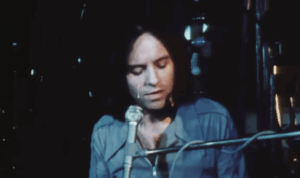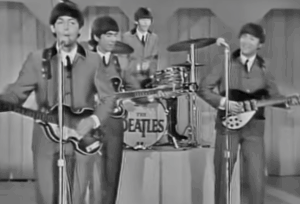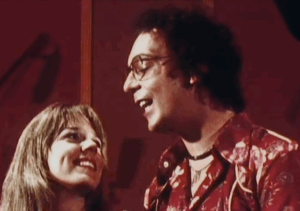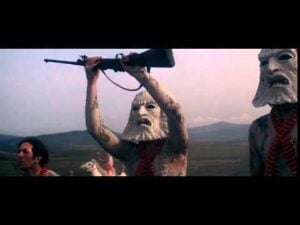5 Black Sabbath Albums That Were Almost Ignored

via @Alina Z Sergiu / YouTube
Few bands have had a career as turbulent—and as triumphant—as Black Sabbath. From redefining the very essence of heavy metal in their early years to enduring decades of lineup changes and personal chaos, Sabbath’s legacy is anything but ordinary. While their iconic early records often dominate the conversation, there’s an entire stretch of their discography that rarely gets the credit it deserves.
Through lineup shakeups and shifting musical landscapes, Black Sabbath kept recording—sometimes with critical acclaim, sometimes with puzzled shrugs from fans and reviewers alike. Yet buried beneath the surface of their better-known classics lies a handful of albums that showcased experimentation, grit, and flashes of brilliance. These records may not have topped charts or inspired countless knockoffs, but they carried the spirit of Sabbath in unexpected directions.
This list is a second look at five albums that never quite got their due. Overlooked at the time, maybe even dismissed, they now deserve another spin—because even when they weren’t dominating headlines, Black Sabbath were still crafting music worth hearing.
5. Born Again (1983)
When Deep Purple frontman Ian Gillan joined Black Sabbath for Born Again, it seemed like a dream team on paper. In reality, the album was met with confusion, critical scorn, and lukewarm sales. Much of the blame was directed at its murky production and infamous cover art, which did little to entice fans or critics at the time.
But if you look past the sonic sludge and garish visuals, Born Again reveals a surprisingly ferocious record. Gillan unleashes his trademark wail right from the opening track, “Trashed,” and maintains a commanding presence throughout. His raw energy matches the heaviness of the riffs, injecting the album with a punk-like urgency.
The darker, more theatrical side of Sabbath shines here, particularly on unsettling tracks like “Disturbing the Priest” and the title track. The claustrophobic production unintentionally adds to the menace, making this one of Sabbath’s eeriest records. It may have been a critical punching bag at the time, but Born Again has earned a cult following for a reason.
4. The Eternal Idol (1987)
By 1987, Black Sabbath had become something of a revolving door for musicians, but The Eternal Idol marked the beginning of a more stable era. Enter Tony Martin, whose towering vocals added a fresh grandeur to Sabbath’s sound. This was a return to metal form after the more melodic leanings of Seventh Star.
Tony Iommi brought back the thick, chugging riffs and searing leads that fans craved, bolstered by future KISS drummer Eric Singer’s precision and drive. The songwriting re-embraced Sabbath’s darker themes, but did so with an epic flair. Tracks like “Glory Ride” and “Ancient Warrior” ooze atmosphere and power.
Interestingly, the album also has a behind-the-scenes layer: many demos were originally recorded with singer Ray Gillen, who was later replaced. Fans can still find those early takes, and they offer a fascinating alternate version of what might have been. But even in its final form, The Eternal Idol stands tall as a severely underrated chapter in Sabbath’s catalog.
3. Headless Cross (1989)
With Headless Cross, Tony Martin solidified himself not just as a stand-in, but as a powerful frontman in his own right. His performance on the title track alone makes a case for this being the strongest Sabbath record outside the Ozzy and Dio eras. His high-flying vocals paired surprisingly well with the band’s increasingly symphonic edge.
Iommi delivered with some of his most dynamic playing of the late ’80s, balancing sinister riffage with moments of melodic brilliance. Tracks like “Devil & Daughter” and “Kill in the Spirit World” show a band that hadn’t lost their spark, even if the mainstream world had turned its attention elsewhere. Cozy Powell’s thunderous drumming and Geoff Nicholls’ keyboards added new layers to the band’s classic doom.
Headless Cross arrived during a time when traditional metal was starting to feel old-fashioned, which might explain why it was largely ignored by critics and commercial charts. But history has been kinder to it. With the right combination of muscle and melody, it proved that Sabbath could evolve while staying true to their roots.
2. Technical Ecstasy (1976)
Often lumped in with Never Say Die! as a sign of decline, Technical Ecstasy deserves far more appreciation. Yes, the internal tensions were mounting, and yes, the band was experimenting—but that’s part of what makes this album so interesting. Instead of coasting on their signature doom, Sabbath took creative risks that still resonate today.
Songs like “You Won’t Change Me” and “Dirty Women” showcase a band veering into progressive territory without losing their heaviness. “Rock ’n’ Roll Doctor” brings swagger, while “Back Street Kids” gallops with proto-punk energy. And Bill Ward’s surprise vocal on “It’s Alright” is a tender and heartfelt curveball from an unexpected source.
This wasn’t Sabbath at their most popular, but it was Sabbath still willing to push the envelope. The album’s lukewarm reception has mellowed with time, and many fans now regard it as a sleeper hit—evidence that even in chaos, the band could still deliver compelling, boundary-pushing work.
1. Dehumanizer (1992)
Ronnie James Dio’s return to Black Sabbath for Dehumanizer was nothing short of electrifying. A decade had passed since his initial exit, but Dio sounded as fierce and commanding as ever. His voice, always powerful, now carried an even darker edge—perfect for the album’s bleak and biting tone.
Tony Iommi met that intensity with some of his heaviest and most aggressive riffing to date. Tracks like “TV Crimes,” “I,” and “Computer God” tackled themes of technological dread and spiritual decay with a muscular groove that felt thoroughly modern without abandoning Sabbath’s roots. Vinny Appice’s drumming completed the power trio’s formidable chemistry.
Although it was overshadowed by grunge’s explosion and internal tensions that once again led to Dio’s departure, Dehumanizer has aged remarkably well. It’s an album that holds its own against the most celebrated Sabbath releases, completing a Dio-era trilogy that deserves a place beside the band’s most iconic works.











